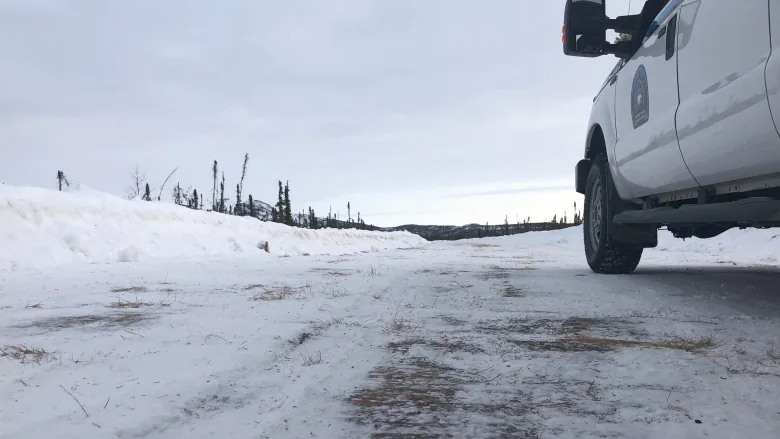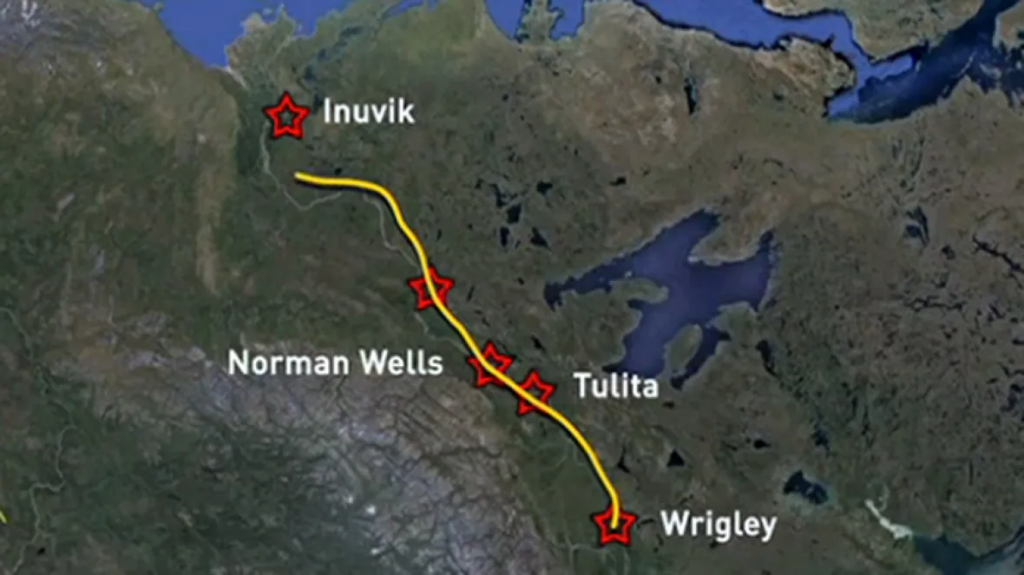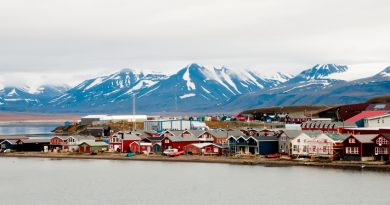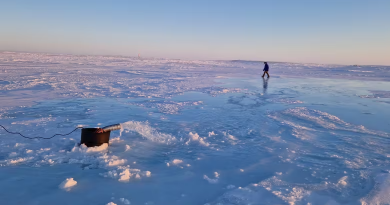Residents in Canada’s Northwest Territories welcome highway project, but concerned over social impacts

The $700-million highway project is a two-lane gravel road that would connect Wrigley to Norman Wells
The Mackenzie Valley Highway is still years away from completion but residents across the territory are sharing their opinions on the project.
The Government of the Northwest Territories is inviting community feedback on the proposed route of the 321 kilometre highway, and spent last week engaging in virtual meetings with residents in the Dehcho and Sahtú regions.
The highway, a $700-million project, is a two-lane gravel road that would connect Wrigley to Norman Wells, N.W.T.
Bobby Clement grew up in Tulita, N.W.T. — a hamlet that will be connected to the all-season highway.
He said the project is necessary to bring down high costs of living in the community and the whole of the Sahtú region.
“The price of fuel is going up,” he said, “clothing, food, transportation, everything’s going up.”
Clement now lives in High Level, Alta., but while in Tulita he said he would often drive the ice road down to Hay River — over 600 kilometres southeast — to save money on groceries.
He said the cost of food in High Level is three or four times less than in the Sahtú and that the highway is needed to reduce the costs of bringing in food and other goods.

Clement said the highway is also necessary to have reliable access to other communities.
He recalls a spring in 2019 when dozens of vehicles got stuck on the way back to the Sahtú from a hand games tournament in Behchokǫ̀.
What would normally be a six hour drive took up to 30 hours for some due to winter road conditions becoming too muddy to drive through.
With warming climates Clement said conditions like those are likely to become more frequent.
Melania Norwegian further acknowledged the pros of the project — lower cost of living and job opportunities chief among them.
She lives in Jean Marie River First Nation, but her partner lives in the Sahtú and she said she “knows how expensive it can get.”
But Norwegian expressed concerns over the development too.
Environmental and social concerns
She said the highway risks bringing in drugs and alcohol and driving up addiction and homelessness in the communities.
“We also have to consider Mother Earth,” she said.
“Mother Earth is falling apart because people are abusing it. Climate change is happening too fast because of roads being built, mines being built, gold, uranium, all these things being pulled out of the ground. So we’re being impacted faster than we expected.”
Norwegian said she wasn’t aware of the government engagement sessions but she hopes officials will ensure locals are being trained for the jobs the development will bring, rather than bringing in workers from the south.
Dave Beamish lives in Fort Smith, N.W.T., but previously lived in Norman Wells and spent years working on the ice road in Wrigley.
Beamish said he can appreciate the worry of rising substance use and crime rates, but that “drugs are getting through, road or no road.”
He said the pros of the highway far outweigh the cons, further emphasizing high cost of living in the Sahtú and naming tourism as another positive outcome.
“I think it’d be an advantage for for most people,” he said.
Beamish was also unaware of the government engagement sessions.
CBC News requested an interview to get an update on the Mackenzie Valley Highway Project. A project manager, however was unavailable due to the engagement sessions.
The sessions are a part of the highway’s developer assessment report. Environmental assessments will come at a later stage of the project.
Related stories from around the North:
Canada: 30–50% of critical northern infrastructure could be at high risk by 2050 due to warming, says study, Eye On The Arctic
Norway: U.S. Navy to build airport infrastructure in North Norway to meet upped Russian submarine presence, The Independent Barents Observer
Russia: Putin speech takes on social issues, crisis with the West and grand plans for Arctic infrastructure, The Independent Barents Observer




Thx for the article about the road to Norman Wells. 😁You could have mentioned that the government has sent $9B of our money to Ukraine to fund Nazis for killing Russians. No one asked us about this. This is done to buy more arms from the western MIC and to weaken Russia. Next will be Iran, then China. As a journalist you need to speak out, otherwise choose another profession,😮